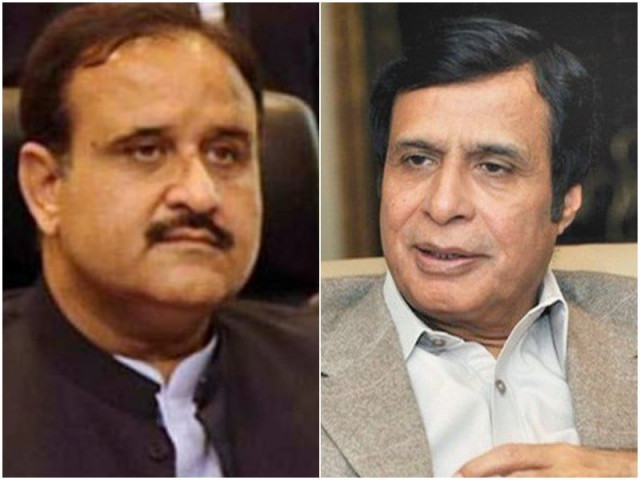Punjab to elect new CM as Buzdar bows out
Opposition claims support of 200 MPAs in 371-strong house

The Punjab Assembly is all set to elect a new chief minister of the province in the wake of the resignation of Usman Buzdar from the office hours after the filing of a no-confidence motion against him by the opposition parties.
The development comes after the Pakistan Tehreek-e-Insaf (PTI) offered the chief minister’s slot of the province to Pakistan Muslim League-Quaid (PML-Q) leader Chaudhry Pervaiz Elahi in order to ensure that the alliance between the two parties at the Centre and in Punjab remains intact.
State Information Minister Farrukh Habib said in a tweet that Elahi met the prime minister and announced support for him. He added that Chief Minister Buzdar had tendered his resignation in the wake of the prime minister's decision to nominate Elahi as the Punjab chief minister.
According to legal experts, the election of the new chief minister would be held on the basis of division of the members of the provincial assembly. Separate lobbies would be assigned in the hall for the candidates’ voters.
A day before the date fixed for the election of the chief minister, any assembly member can submit his/her nomination paper to the secretary. A candidate can file more than one nomination papers but no member may nominate or endorse multiple candidates.
The nomination papers must have the signatures of a proposer, a seconder and a signed statement of the candidate that he agrees to his nomination. The nomination papers may be submitted by the candidate, proposer or seconder.
Read: Opposition submits no-trust motion against Buzdar
The assembly secretary signs and issues the receipt of each nomination paper with the date and time. If a member submits more than one nomination paper, the one submitted first is considered valid. The papers are then scrutinised in the presence of the aspiring candidates, their proposers or seconders.
A candidate may withdraw his candidature any time before the commencement of the voting by submitting a written application to the speaker. The speaker reads before the assembly the names of the candidates and begins the process of the election in accordance with the stipulated procedure.
Before the voting, the speaker directs the bells to be rung for five minutes to call the members who are not present in the house. All entrances to the lobby are locked immediately after the bells are rung and till the voting is completed.
The election procedure stipulates that the legislators are asked to go to the lobbies of the candidates whom they support, after which they are counted and the candidate with the highest number of votes is declared elected.
The members who wish to vote are called to cross a line where enumerators register the vote. Upon approaching the enumerator’s desk, each member calls his or her division number assigned under the rules. No member shall return to the house after casting his vote unless the bells are rung.
When the speaker is satisfied that all the members have registered their votes, he declares that the voting is over. The secretary then compiles the division list, counts the registered votes and presents the result of the counting to the speaker who orders the ringing of bells for two minutes so that the members may return to the house.
Read: Will removing Buzdar do the magic?
Under the rules, if there is only one candidate and he gets the votes of the majority of the total members of the assembly, then the speaker will announce his election as the chief minister. However, if he or she fails to get a majority vote, the entire election process will be restarted.
If no candidate is able to get the majority of the total votes, the speaker may call for the second voting among the two candidates, who get the highest number of votes in the first voting and announces the election of the candidate who has received a majority of the votes.
The provincial assembly comprises 371 members. The PTI is the largest party with 186 members followed by the Pakistan Muslim League-Nawaz’s (PML-N) 165. The PML-Q has 10 seats, the PPP seven and others have six.
However, the opposition claimed during a joint news conference on Monday that it had the support of more than 200 MPAs, including the dissident PTI lawmakers, on the no-confidence motion against the chief minister.
On the occasion, the PML-N and the PPP leaders said that the people of Punjab did not want Buzdar in the chief minister’s office. They held Buzdar responsible for “running a corruption’s bazaar [market]”, including accepting bribes for transfers and postings.



















COMMENTS
Comments are moderated and generally will be posted if they are on-topic and not abusive.
For more information, please see our Comments FAQ